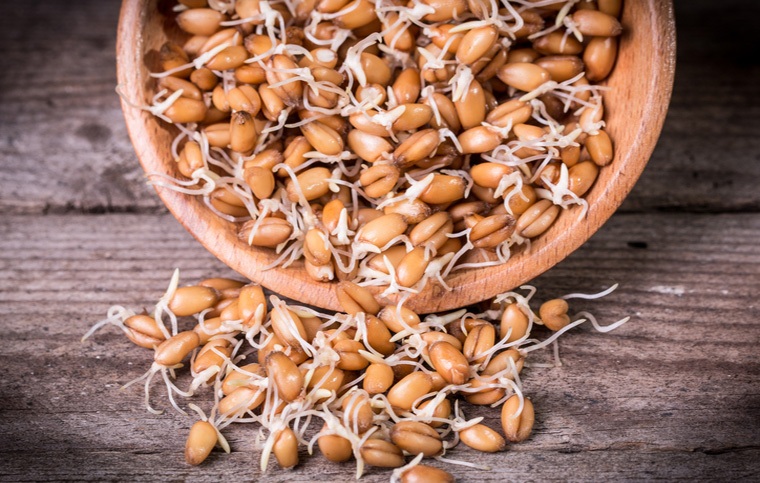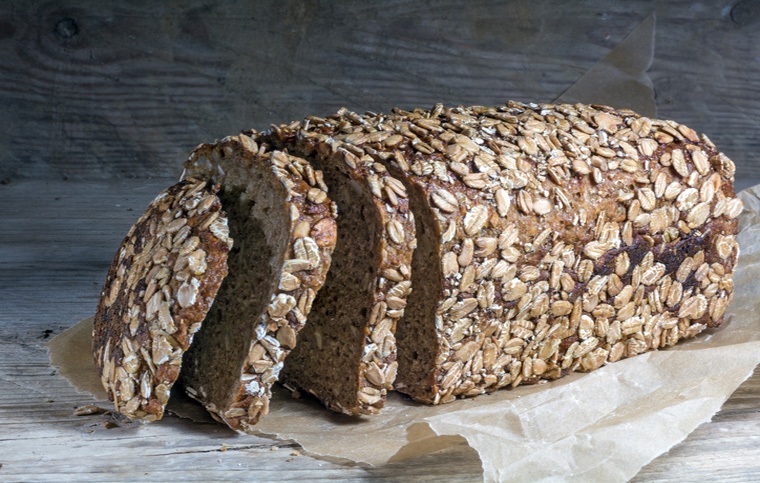Is Sprouted Grain Bread Really That Much Better for You?
A few years ago, healthy shoppers were the ones packing their shopping carts with whole wheat loaves instead of Wonder Bread. Then, in-the-know wellness obsessives and celebs like Carrie Underwood and Mindy Kaling starting turning to their bakers and brands like Ezekiel, Alvarado St., and Trader Joe's for their avocado toast-making needs.
Now, sprouted grains, which give these bread brands their health-boosting powers, are surging in popularity, even among those who don't normally eat gluten. And they're also trending in more than just baked goods—witness the boom of sprouted grain cereals, pizza crusts, and even chips.
"There's certainly a health halo around sprouted-grain anything."
But are sprouted grains—AKA the ones that have been allowed to germinate—really that much better for you?
"There's certainly a health halo around sprouted-grain anything," says Ellie Krieger, RD, author and host of Ellie’s Real Good Food. To find out, I asked Krieger and holistic nutritionist Dr. Etti Ben-Zion (also of Dr Smood cafe fame) to weigh in.
Are sprouted grains as healthy as people think? Scroll down to find out.

What are sprouted grains?
"Grains are seeds, and when you put seeds in water, they sprout," Krieger succinctly explains. Regular grains could produce a new plant, but they're harvested before they have a chance to germinate. (Hey, it sounds simple, but this wasn't exactly covered in grade school biology class.)

{{post.sponsorText}}
A sprouted grain, as the name suggests, is one that has started to grow. "When this happens, some of the starch in the seed is used up in energy for the little sprout," Krieger says. "So it makes the seed a little less starchy." That means it might also be lower in gluten, but it still doesn't get a GF seal.

Are sprouted grains healthier?
"Because more of the starch is being used up, the seeds themselves are more concentrated with other nutrients, like protein and amino acids," Krieger explains. For some people, this improved protein-to-carb ratio makes all the difference. It's what moves bread from a hard pass in their diet for "empty carbs" reasons to a solid yes, please.
For some people, the improved protein-to-carb ratio makes all the difference.
Krieger agrees this nutrition profile makes sprouted grains a healthier option, but only marginally so. "It's not significantly better than a good-quality whole grain option," she says.
Dr. Ben-Zion, however, is all about 'em. Especially for people with digestive issues (meaning half the population, by our guesstimation). "What I find with my clients is that they eat healthy food, but often don't feel the total effects of it. And that's because their digestive system is compromised. When that happens, you have trouble absorbing nutrients," she says. "Not only do sprouted grains have fiber, amino acids, and B vitamins, their high levels of magnesium and zinc make it easier to absorb everything, so you're truly getting all the benefits [of your meal]."
This is your gut on sprouted grains
Dr. Ben-Zion also says there's a reason people who normally follow a gluten-free diet can stomach sprouted bread and grain products. "The sprouts pre-digest the gluten, so it's easier on the gut," she says. (Still, people with Celiac disease who are straight-up allergic should stick with GF options, she adds.)
But what's most important when comparing sprouted grain options to other grocery store staples, according to both experts, is finding simple ingredients' lists that are not full of additives and sugar. And that holds true no matter what you're buying.
If you want to be the smartest food shopper ever, avoid these six missteps nutritionists see healthy people make all the time. And if you're trying to cut out gluten, this beginner's guide to alternative flours will help.
Loading More Posts...